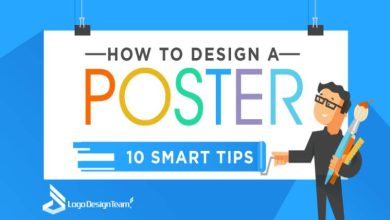Transforming Your Life Through Mediation

Key Takeaways:
- Mediation is a voluntary and confidential process that empowers individuals to take control of their own resolution.
- Benefits of mediation in Dallas include cost-effectiveness, time-efficiency, greater control and flexibility, confidentiality, and relationship preservation.
- Mediation differs from other conflict resolution methods by being non-adversarial, voluntary, informal, relationship-centered, and focused on interests.
- Qualities to look for in a mediator include impartiality, active listening skills, empathy, problem-solving abilities, and cultural sensitivity.
- Experience and expertise are crucial factors when selecting a mediator, and finding one who understands your specific needs is important.
- Different mediation techniques include Facilitative Mediation, Transformative Mediation, and Evaluative Mediation, each with its own focus and approach.
- Mediation can be used for personal growth and self-reflection, improving relationships and social interactions, and resolving conflicts and making decisions.
Welcome to your comprehensive guide on how mediation can transform your life in Dallas. In this article, we will explore the power of mediation, the benefits it offers, and how it differs from other conflict resolution methods. We will also guide you through the process of choosing the right mediator for your needs and delve into different mediation techniques. Finally, we will discuss how mediation can be applied to personal growth, relationships, and conflict resolution, unlocking its potential in every aspect of your life.
Discover the Power of Mediation
Understanding the Basics of Mediation
Mediation is a voluntary and confidential process in which a neutral third party, called a mediator, facilitates communication and negotiation between disputing parties. Unlike litigation, which involves going to court and having a judge make a decision, mediation empowers individuals to take control of their own resolution.
During mediation, the parties have the opportunity to express their concerns, needs, and interests in a safe and structured environment. The mediator helps to identify common ground, foster understanding, and facilitate creative solutions that meet the needs of both parties.
Benefits of Mediation in Dallas
Dallas, known for its bustling metropolitan area and diverse population, is an ideal setting for mediation. There are several benefits to choosing mediation in Dallas:
- Cost-effective: Mediation is generally more affordable than going to court. It allows parties to save on legal fees and avoid lengthy litigation processes.
- Time-efficient: Mediation can resolve disputes in a shorter amount of time compared to traditional litigation, which can drag on for months or even years.
- Greater control and flexibility: Mediation empowers individuals to participate actively in the decision-making process and reach a resolution that suits their unique needs and circumstances.
- Confidentiality: Mediation offers a confidential space for parties to discuss sensitive issues without fear of public exposure or damaging their reputation.
- Preserves relationships: By preserving relationships through open communication and understanding, mediation can help parties maintain important connections and avoid long-lasting animosity.
How Mediation Differs from Other Conflict Resolution Methods
While there are various methods available for conflict resolution, mediation stands out for its unique qualities:
- Non-adversarial: Unlike litigation, which tends to be a win-lose situation, mediation focuses on collaboration and finding mutually beneficial solutions.
- Voluntary: Mediation is a voluntary process, and all parties must agree to participate. This voluntary aspect enhances the willingness to work together towards a resolution.
- Informal: Mediation provides a relaxed and informal setting, allowing parties to express themselves freely and comfortably.
- Relationship-centered: Unlike other methods that may prioritize legal rights and positions, mediation emphasizes the importance of building and maintaining relationships.
- Focuses on interests: Mediation encourages parties to identify their underlying interests and work towards addressing them, rather than getting stuck on fixed positions.
Choosing the Right Mediator
Qualities to Look for in a Mediator
Choosing the right mediator is crucial for a successful mediation process. Here are some key qualities to look for:
- Impartiality: A mediator should be neutral and impartial, ensuring that all parties’ perspectives are heard and valued without favoring any particular side.
- Active listening skills: Effective mediators must possess strong listening skills to understand the concerns and needs of each party fully.
- Empathy: A mediator should be able to empathize with the emotions and experiences of all parties involved, creating a safe and compassionate environment for dialogue.
- Problem-solving abilities: Mediators should be skilled at facilitating creative problem-solving and helping parties generate options for resolution.
- Cultural sensitivity: In diverse communities like Dallas, cultural sensitivity is essential to ensure that the mediator can navigate different cultural backgrounds and perspectives effectively.
The Importance of Experience and Expertise
Experience and expertise are crucial factors to consider when selecting a mediator. A mediator with a substantial track record in resolving conflicts similar to yours can bring valuable insights and strategies to the table.
Expertise in specific areas, such as family or workplace mediation, can also be beneficial when dealing with complex or specialized issues. It is essential to research a mediator’s background, training, and certifications to ensure they possess the necessary qualifications to navigate your specific situation.
Finding a Mediator that Understands Your Needs
Every conflict is unique, and finding a mediator who understands your specific needs is vital. Consider seeking a mediator with experience working in your area of conflict or someone who specializes in the type of dispute you are facing.
Additionally, take the time to meet with potential mediators for an initial consultation. This allows you to gauge their approach, communication style, and whether you feel comfortable working with them. Look for someone who listens attentively, asks insightful questions, and demonstrates a genuine commitment to helping you find a resolution.
Exploring Different Mediation Techniques
Facilitative Mediation: Building Communication and Understanding
Facilitative mediation focuses on building effective communication and understanding between the parties. The mediator acts as a facilitator, guiding the conversation and helping each party articulate their perspectives and needs.
This mediation technique often involves using open-ended questions, active listening, and reframing to encourage empathy and mutual understanding. The goal is to empower the parties to find their own solutions with the mediator’s assistance.
Transformative Mediation: Fostering Empowerment and Mutual Respect
Transformative mediation places a strong emphasis on empowerment and mutual respect. The mediator’s role is to support the parties in finding their voice, understanding their own needs, and recognizing the other party’s perspective.
This mediation technique seeks to transform the way parties perceive and interact with each other. By fostering empowerment and respect, transformative mediation can lead to long-term resolution and significantly improve relationships.
Evaluative Mediation: Evaluating and Exploring Possible Outcomes
Evaluative mediation takes a more evaluative and directive approach, with the mediator offering insights and suggestions to guide the parties towards a resolution. This technique is particularly useful when parties are seeking an expert opinion or need assistance in evaluating their options.
The mediator may actively evaluate the strengths and weaknesses of each party’s position, propose settlement scenarios, or give an opinion on the likely outcome if the matter went to court. Evaluative mediation can be helpful in cases where the parties are looking for a decisive resolution or are facing significant power imbalances.
Unlocking the Potential of Mediation in Your Life
Using Mediation for Personal Growth and Self-Reflection
Mediation is not only effective for resolving disputes but can also be a powerful tool for personal growth and self-reflection. By engaging in dialogue and actively listening to others’ perspectives, mediation can help individuals gain insights into their own emotions, values, and communication styles.
Through mediation, individuals can develop valuable skills such as empathy, problem-solving, and conflict management. These skills can be applied not only to resolving conflicts but also to enhancing personal relationships and fostering personal growth.
Applying Mediation Techniques in Your Relationships and Social Interactions
Mediation techniques can greatly improve relationships and social interactions. By employing active listening, reframing, and empathy, individuals can build stronger connections, diffuse conflicts before they escalate, and foster better understanding and mutual respect.
Whether it’s dealing with family dynamics, workplace disagreements, or community disputes, applying mediation techniques can create a more harmonious and cooperative environment.
Utilizing Mediation for Conflict Resolution and Decision Making
Conflict is an inevitable part of life, but how we handle it can profoundly impact our well-being. Mediation provides a structured and supportive process for resolving conflicts and making decisions.
By choosing mediation over more adversarial methods, individuals can maintain control over the outcome, preserve relationships, and promote a more collaborative approach to conflict resolution. Mediation allows parties to craft creative solutions that address their specific needs and interests, resulting in more satisfying and durable outcomes.
In conclusion, mediation is a powerful tool that can transform your life in Dallas. It offers numerous benefits, such as cost-effectiveness, time-efficiency, and the preservation of relationships. By choosing the right mediator and exploring different mediation techniques, you can unlock the full potential of mediation in your personal growth, relationships, and conflict resolution. Embrace mediation as a means to create positive change in your life and foster a more harmonious and connected community.
FAQ
Question: What is mediation? – Mediation is a voluntary and confidential process in which a neutral third party, called a mediator, facilitates communication and negotiation between disputing parties. Unlike litigation, which involves going to court and having a judge make a decision, mediation empowers individuals to take control of their own resolution.
Question: What are the benefits of mediation in Dallas? – Some benefits of mediation in Dallas include cost-effectiveness, time-efficiency, greater control and flexibility, confidentiality, and relationship preservation.
Question: How does mediation differ from other conflict resolution methods? – Mediation differs from other conflict resolution methods by being non-adversarial, voluntary, informal, relationship-centered, and focused on interests.
Question: What qualities should I look for in a mediator? – When selecting a mediator, look for qualities such as impartiality, active listening skills, empathy, problem-solving abilities, and cultural sensitivity.
Question: How important is experience and expertise in a mediator? – Experience and expertise are crucial factors when selecting a mediator. A mediator with a substantial track record and expertise in your specific area of conflict can bring valuable insights and strategies to the table.
Question: How do I find a mediator that understands my needs? – Look for a mediator with experience working in your area of conflict or someone who specializes in the type of dispute you are facing. Arrange an initial consultation to gauge their approach and communication style.
Question: What are the different mediation techniques? – Some different mediation techniques include Facilitative Mediation, Transformative Mediation, and Evaluative Mediation, each with its own focus and approach.
Question: How can I apply mediation techniques in my life? – Mediation can be used for personal growth and self-reflection, improving relationships and social interactions, and resolving conflicts and making decisions.



